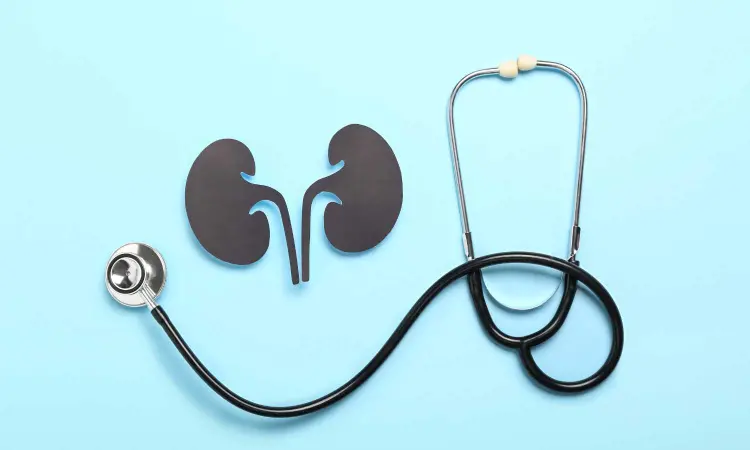- Home
- Medical news & Guidelines
- Anesthesiology
- Cardiology and CTVS
- Critical Care
- Dentistry
- Dermatology
- Diabetes and Endocrinology
- ENT
- Gastroenterology
- Medicine
- Nephrology
- Neurology
- Obstretics-Gynaecology
- Oncology
- Ophthalmology
- Orthopaedics
- Pediatrics-Neonatology
- Psychiatry
- Pulmonology
- Radiology
- Surgery
- Urology
- Laboratory Medicine
- Diet
- Nursing
- Paramedical
- Physiotherapy
- Health news
- Fact Check
- Bone Health Fact Check
- Brain Health Fact Check
- Cancer Related Fact Check
- Child Care Fact Check
- Dental and oral health fact check
- Diabetes and metabolic health fact check
- Diet and Nutrition Fact Check
- Eye and ENT Care Fact Check
- Fitness fact check
- Gut health fact check
- Heart health fact check
- Kidney health fact check
- Medical education fact check
- Men's health fact check
- Respiratory fact check
- Skin and hair care fact check
- Vaccine and Immunization fact check
- Women's health fact check
- AYUSH
- State News
- Andaman and Nicobar Islands
- Andhra Pradesh
- Arunachal Pradesh
- Assam
- Bihar
- Chandigarh
- Chattisgarh
- Dadra and Nagar Haveli
- Daman and Diu
- Delhi
- Goa
- Gujarat
- Haryana
- Himachal Pradesh
- Jammu & Kashmir
- Jharkhand
- Karnataka
- Kerala
- Ladakh
- Lakshadweep
- Madhya Pradesh
- Maharashtra
- Manipur
- Meghalaya
- Mizoram
- Nagaland
- Odisha
- Puducherry
- Punjab
- Rajasthan
- Sikkim
- Tamil Nadu
- Telangana
- Tripura
- Uttar Pradesh
- Uttrakhand
- West Bengal
- Medical Education
- Industry
PCSK9 Inhibitors Safe and Effective for CKD Patients, finds research

Researchers have found in a new study that PCSK9 inhibitors can be safely and effectively used for lipid-lowering therapy in patients with chronic kidney disease (CKD), including those with advanced stages 4–5. The study, published in BMC Nephrology, assessed the role of PCSK9 inhibitors in lowering low-density lipoprotein cholesterol (LDL-C) among CKD patients who are at high cardiovascular risk.
Statins are the standard therapy for lipid management, but their use in advanced kidney disease is often limited by safety concerns, side effects, and reduced efficacy. This has left a critical treatment gap for patients who remain at high risk of cardiovascular events. PCSK9 inhibitors, a class of monoclonal antibodies that target proprotein convertase subtilisin/kexin type 9, work by preventing the degradation of LDL receptors and thereby enhancing LDL-C clearance from the bloodstream.
According to the study, these drugs demonstrated significant LDL-C reduction across all CKD stages, without major adverse effects, even in patients with severe renal impairment. Importantly, the safety profile of PCSK9 inhibitors appeared favorable. Unlike statins, they did not show evidence of kidney function decline or muscle toxicity, making them a promising option for individuals who cannot tolerate or do not respond adequately to statins.
The researchers also noted potential benefits in reducing inflammation and stabilizing atherosclerotic plaques, though more studies are needed to confirm these secondary effects.
The findings provide reassurance to clinicians who are hesitant to prescribe PCSK9 inhibitors in advanced CKD due to the lack of large-scale randomized trial data in this population. While the study supports their use as an effective lipid-lowering strategy, the authors emphasized that further research should evaluate long-term cardiovascular outcomes and cost-effectiveness in CKD patients.
With cardiovascular disease being the leading cause of death among CKD patients, expanding safe treatment options like PCSK9 inhibitors could play an important role in improving survival and quality of life.Reference:
Albashaireh, D., El-Khoury, E., Singh, S., Grupper, A., & Kalantar-Zadeh, K. (2025). PCSK9 inhibitors in patients with chronic kidney disease: A systematic review. BMC Nephrology, 26, 47. https://doi.org/10.1186/s12882-025-04347-1
Dr. Shravani Dali has completed her BDS from Pravara institute of medical sciences, loni. Following which she extensively worked in the healthcare sector for 2+ years. She has been actively involved in writing blogs in field of health and wellness. Currently she is pursuing her Masters of public health-health administration from Tata institute of social sciences. She can be contacted at editorial@medicaldialogues.in.
Dr Kamal Kant Kohli-MBBS, DTCD- a chest specialist with more than 30 years of practice and a flair for writing clinical articles, Dr Kamal Kant Kohli joined Medical Dialogues as a Chief Editor of Medical News. Besides writing articles, as an editor, he proofreads and verifies all the medical content published on Medical Dialogues including those coming from journals, studies,medical conferences,guidelines etc. Email: drkohli@medicaldialogues.in. Contact no. 011-43720751


